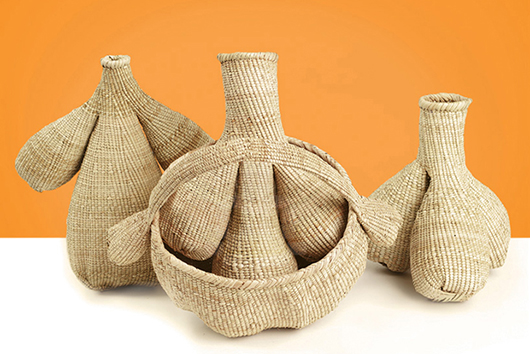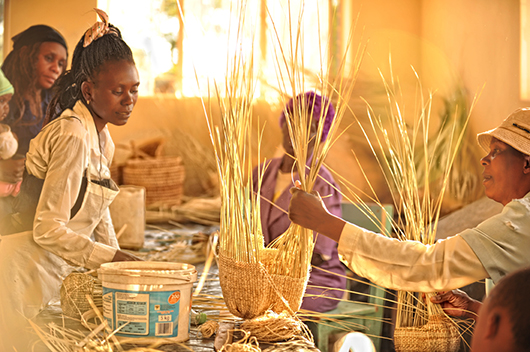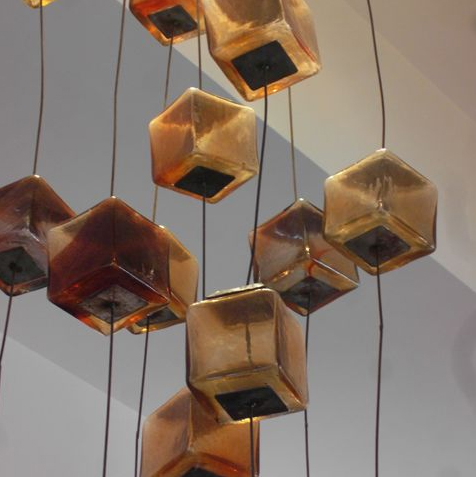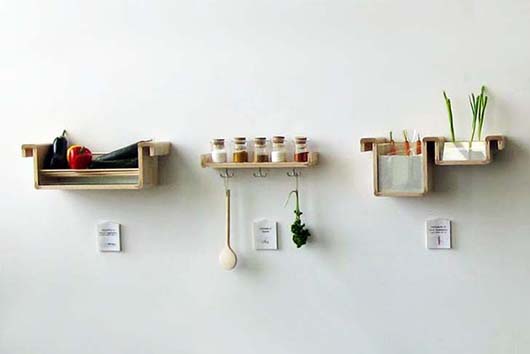Ambiente 2015: Sustainability is the focal theme at the international platform for consumer good

Functionality, good design, aesthetic appeal and quality: these are the properties that consumers are looking for when evaluating products. For several years now, the theme of sustainability has been added to this spectrum and has meanwhile become firmly embedded in consumers’ minds, which puts it very much in demand. And it is not only here, but also on industry platforms such as Ambiente (13 to 17 February 2015), where the subject of sustainability has become firmly anchored.
 title="Más..." />
title="Más..." />
And it is not only the exhibitors that are bringing their range of products more strongly into line with sustainability criteria. It is also Ambiente's supporting programme where this theme is acquiring a stronger presence. “For many consumers, resource conservation, ecologically sensible processing techniques and the well considered use of materials are sustainable aspects which they would not like to forego. Along with quality and aesthetic appeal, sustainability is well on its way to becoming a critical criterion for determining the choice of product”, says Nicolette Naumann, Vice President Ambiente.
Basket Case II - Europe meets Africa
The Basket Case II project provides a very special framework for the theme of sustainability. The presentation space in the Northern Foyer [Foyer Nord] of Hall 11.0 showcases the results of two workshops that the designers Matali Crasset and Sebastian Herkner held in Zimbabwe in the Spring of 2014. The workshops were initiated by the European Union National Institutes of Culture (EUNIC) Zimbabwe. A total of 17 local basket weavers (all of them women) took part in the workshops held in two handicraft centres, namely the Binga Craft Centre and Bulawayo Home Industries. Together with their teams, the designers - one from Paris and the other from Offenbach - developed collections that bear the signature of the weavers of each respective region. The result is the fusion of seeming opposites from the sustainability viewpoint: traditional handicraft from Zimbabwe meets European design know-how, without neglecting local and environmental criteria. And, not only can the products be examined at Ambiente, but they can also be ordered directly in Hall 10.1, where the handicraft centres have their exhibition stand.
Dar D’art: Women's Power from Tunisia
The products of the Tunisian association ‘Femmes, montrez vos muscles’ [‘Women, show your muscles’] come from the fields of handicrafts, home accessories and furniture and until now have been obtainable only in their country of origin: - the Tunisian association was founded in 2011 by the designer Sadika Keskes. The association now numbers more than 800 members, all of them female. Together with the Society for International Cooperation (Gesellschaft für internationale Zusammenarbeit - GIZ) the association ‘Femmes, montrez vos muscles’ has founded the marketing company Dar d´art. With their backing, the aim is to find buyers in Europe for their sustainably produced high-quality, limited-edition. Dar d’art will present itself for the first time at Ambiente at a stand in Hall 8.

Design Plus and Talents - Sustainability in Focus
For more than three decades, the prestigious Design Plus award has been the hallmark of innovative design and is one of Germany's leading design competitions. Here too, sustainability and ecological quality are among the criteria the international jury of experts are looking for, along with functional performance and aesthetic appeal. Also the Talents - the participants in Messe Frankfurt's eponymous talent-promotion programme - are taking up the theme of sustainability more intensively. Especially when it comes to storing and preparing food, the Talents have given thought to how existing concepts can be translated into tomorrow's sustainable concepts. In the project ‘Save Food from the Fridge’, the Jihyun David design studio takes the familiar tried-and-tested methods of food conservation and gives them a new, fresh form for the kitchens of today. Vegetables remain fresh longer through the evaporation of water, carrots and spring onions are stored vertically in damp sand, potatoes in a dark box. All elements are designed to be fixed to the wall and decorate the kitchen at the same time. For mobile, pollutant-free preparation of food, the American designer Bodin Hon, who is based in Milan, has developed an advanced version of the solar stove with his ‘Solari’. Through slow cooking with solar energy, the dishes are prepared very gently and the cooker's large multifunctional bracket serves as a carrying handle or stand.

Source: Ambiente
Read more news related Ambiente published at Infurma
Visit the Ambiente website
News Infurma:
Online Magazine of the International Habitat Portal. Design, Contract, Interior Design, Furniture, Lighting and Decoration
